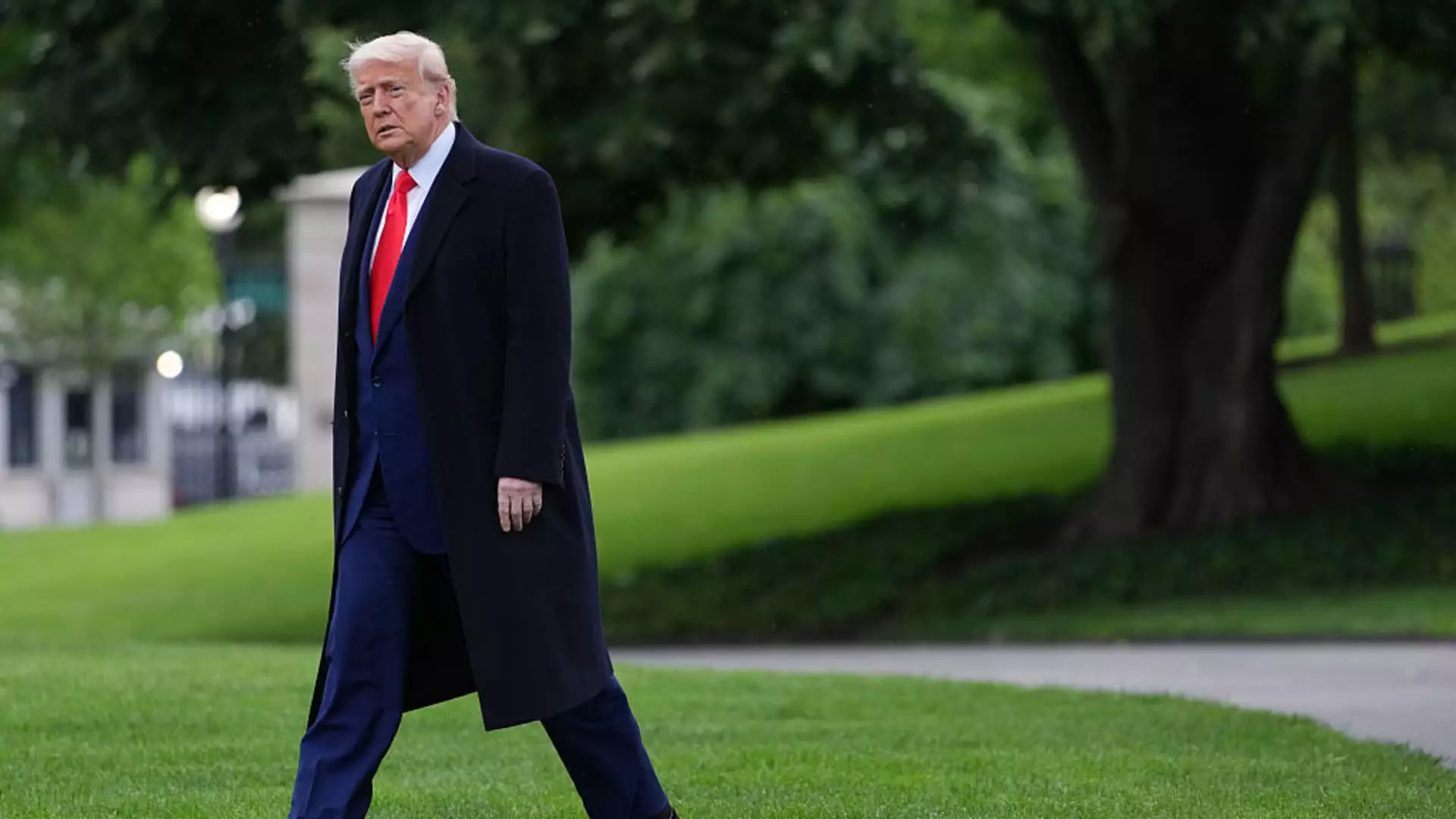In an unexpected twist toward financial recklessness, the Trump administration has officially rolled back protective barriers within 401(k) plans that had previously aimed to keep potentially volatile investments—such as cryptocurrencies and digital assets—at bay. This brazen move to enable easier access to risky financial instruments raises questions about the administration’s commitment to safeguarding the retirement savings of American workers. Gone is the prudent encouragement from the Biden-era Labor Department, which urged caution and thorough evaluation of these digital investments. In its place stands a proclamation that reappears more like an open invitation to gamble with retirement funds than a thoughtful fiscal strategy.
The Illusion of Freedom
Under the guise of promoting freedom and flexibility, the Trump Labor Department’s revised guidelines effectively serve to dismantle regulations designed to protect individual workers. The administration claims to have rescinded a stance rooted in “extreme care” because it purportedly lacks a basis in the Employee Retirement Income Security Act (ERISA). However, this reasoning conveniently overlooks the very real responsibilities that corporate fiduciaries have toward their employees’ investments. By casting aside caution, we enter a terrain where the line between investment prudence and reckless speculation blurs alarmingly. What the Labor Department fails to acknowledge is that freedom without protection often leads to chaos—a point clearly illustrated by the wild fluctuations seen within the crypto market.
Cloaked Agendas and Conflicting Interests
It should give every news consumer pause when the same government entity facilitating the promotion of cryptocurrencies is ipso facto under the influence of figures like former President Trump, who has himself launched a $TRUMP meme coin. Such conflicts of interest raise critical ethical concerns. The Trump administration’s decision can easily be viewed as a part of a broader agenda to position the United States as the “crypto capital of the world,” suggesting that ambition outweighs the responsible stewardship of American workers’ livelihoods. When financial policy begins resembling the unpredictable nature of meme stocks, one has to wonder whether the government is acting in the best interests of citizens or merely following ideological whims.
Fiduciary Duty vs. Popular Appeal
As financial planners have noted, this new guidance could dangerously mislead employers into believing they can flood their 401(k) offerings with cryptocurrencies without facing repercussions. The fundamental fiduciary duty imposed by ERISA mandates that employers prioritize the interests of their employees, entailing a responsible approach to investment choices—an approach that is decidedly absent in this scenario. If employers opt to add cryptocurrencies to investment lineups, they could find themselves embroiled in lawsuits if volatile digital assets collapse, causing catastrophic losses to workers’ savings. It is a gamble that should not be taken lightly.
A Call for Reason amidst Hysteria
Yes, there is a palpable enthusiasm in the marketplace for cryptocurrencies. Still, that enthusiasm often overlooks the monumental risks involved. Philip Chao, a respected financial planner, encapsulated this sentiment well, highlighting that viewing crypto as any other legitimate asset lacks careful consideration of its unique complexities. We are not just dealing with a new investment class; we are grappling with an asset landscape riddled with fraud, theft, and outright lack of understanding. The absence of regulatory structures to protect investors adds to a prevailing state of confusion. For a country that prides itself on its financial acumen, adopting a cavalier approach toward such assets feels dangerously irresponsible.
The Future of Retirement Investment
As we stand on this precipice of change, with both excitement and trepidation abounding, it is crucial to remember that not all freedom is beneficial, particularly when it comes to financial decisions tied to the long-term well-being of individuals. The relaxation of controls around cryptocurrencies in 401(k) plans is an alarming reminder that in the realm of personal finance, the security of a lifetime of savings should never be treated like an unpredictable stock market gamble. The challenge ahead lies in finding a balance between innovation and a responsible, ethical framework to ensure that retirement savings remain protected in a rapidly evolving digital world.

